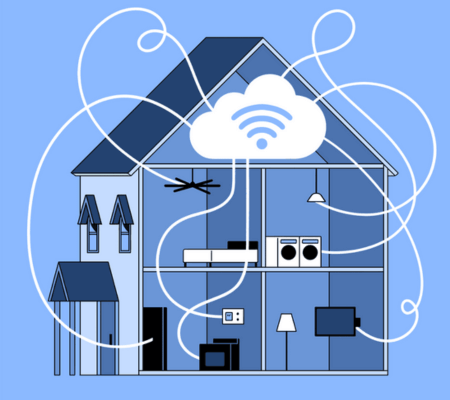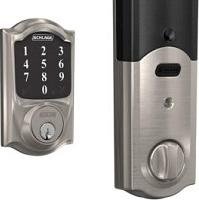When it comes to home security, many people believe that home security systems are a waste of money. This misconception is fueled by various factors such as the complexity and cost of installation, the monthly subscription fees, and the false belief that burglaries and break-ins only happen to other people.
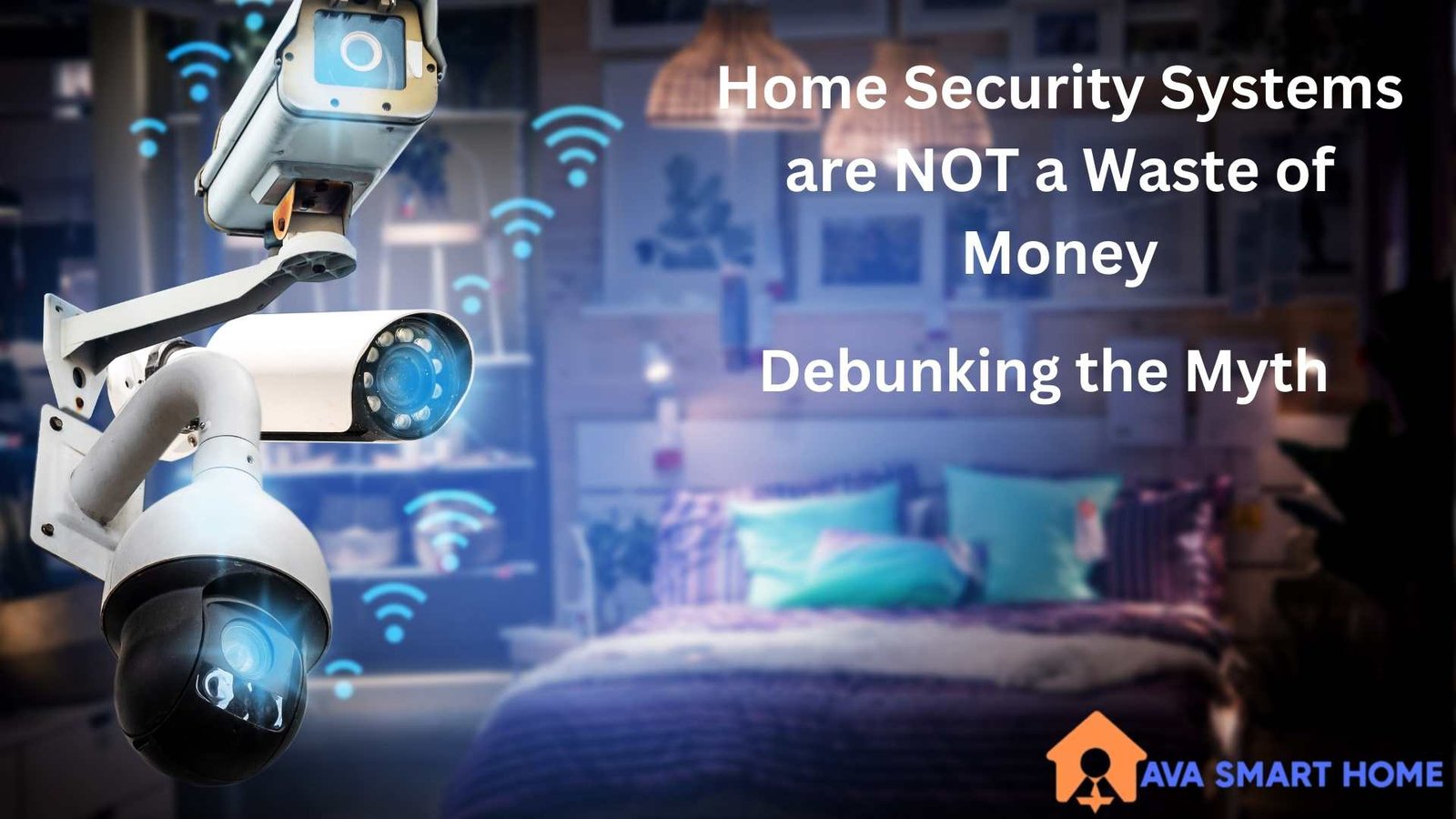
However, the reality is that Home Security Systems are NOT a Waste of Money that can provide peace of mind and protect your family and belongings. Now, we will debunk the myth that home security systems are a waste of money and explain why they are a crucial investment for your home.
Home Security Systems Deter Crime
One of the primary benefits of a home security system is that it can deter burglars and intruders from targeting your home. A visible home security system such as a camera or an alarm can significantly reduce the likelihood of a break-in.
In fact, a study by the University of North Carolina found that 60% of burglars would avoid homes with security systems. A security system can provide an additional layer of protection that can discourage burglars from even attempting to enter your home.
Early Warning for Emergencies
Home security systems not only deter burglars but also provide early warning for other emergencies. Smoke detectors, carbon monoxide detectors, and water sensors can alert you and emergency services of a potential threat before it becomes a full-blown disaster. In case of a fire or gas leak, early detection can save lives and prevent significant property damage.
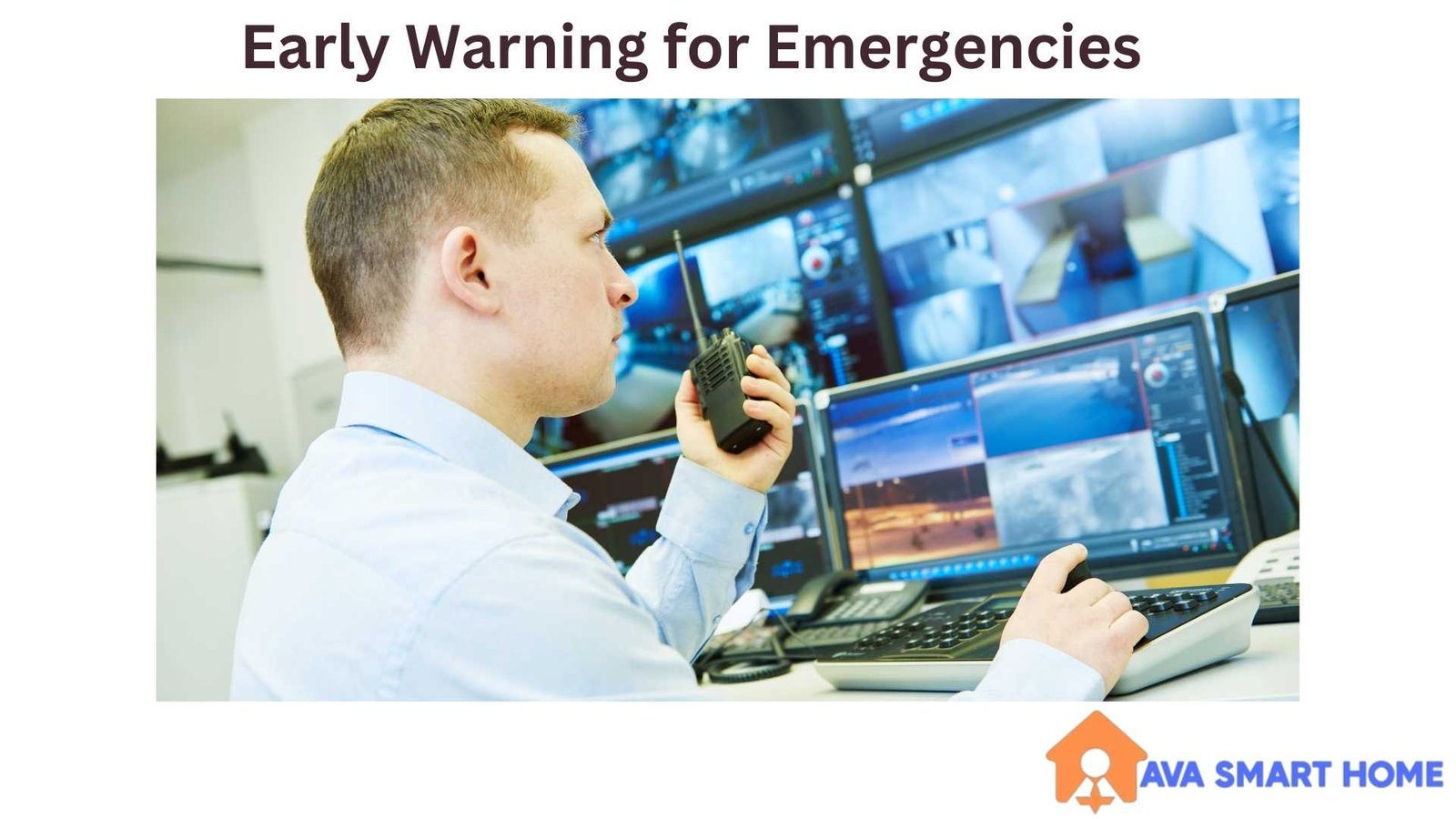
Remote Monitoring
Many home security systems offer remote monitoring options, which allow you to keep an eye on your home even when you are away. With a mobile app, you can receive real-time alerts and monitor your home security cameras from anywhere.
This feature is especially useful for people who frequently travel or have children or elderly relatives at home. You can also control your smart home devices, such as thermostats and door locks, remotely.
Discounts on Home Insurance
Having a home security system can also result in lower home insurance premiums. Insurance companies consider home security systems as a measure of risk mitigation and are often willing to offer discounts to homeowners who have them installed. This can result in significant savings in the long run and offset the cost of the system.
Peace of Mind
Perhaps the most significant benefit of a home security system is the peace of mind it provides. Knowing that your home is protected and that you will receive alerts in case of an emergency can significantly reduce stress and anxiety. With a home security system, you can rest easy knowing that your family and belongings are safe.
Table of Contents
ToggleConclusion: Home Security Systems are NOT a Waste of Money
In conclusion, home security systems are not a waste of money. They provide numerous benefits, including deterring crime, providing early warning for emergencies, remote monitoring, discounts on home insurance, and peace of mind.
While the initial cost of installation and monthly subscription fees may seem daunting, the benefits far outweigh the cost. Investing in a home security system is a wise decision that can protect your family and provide peace of mind for years to come.
What are the Top DIY Home Security Systems for 2023?
The finest DIY home security systems for the year 2023 are characterized by their ease of installation, user-friendly interfaces, and remarkable flexibility. These systems are designed to suit virtually any household and can be customized to fit the unique needs of homeowners.
Installing a DIY security system has never been easier with these state-of-the-art security systems. With intuitive user interfaces, homeowners can easily monitor their properties and receive instant alerts when suspicious activities occur. Furthermore, these security systems can be tailored to meet specific security needs, whether it’s monitoring the front door or safeguarding valuables.
The top do-it-yourself (DIY) home security systems for the year 2023 boast several remarkable features such as effortless installation, user-friendly interfaces, and exceptional flexibility. These advanced security systems are created to cater to the varying needs of homeowners and can be personalized to suit their specific requirements.
With the latest technological advancements, the installation process for these DIY security systems has become incredibly simple. The easy-to-use interfaces enable homeowners to keep a close eye on their properties and receive real-time notifications in case of any suspicious activity. Moreover, these security systems can be customized to focus on a particular area of the house, such as the front door or safeguarding valuables, ensuring optimal safety.
To summarize, the finest DIY home security systems for 2023 are cost-effective and offer a convenient solution for homeowners who prioritize the safety and security of their homes.
Best DIY Home Security Systems
1. Ring Alarm Pro
Check Price Amazon
| Installation | DIY installation |
| Contract Required | No |
| Voice Assistant | Amazon Alexa, Google Assistant |
| Additional Fees | 24/7 professional monitoring fee, recording fees |
| Service Bundles | N/A |
The DIY home security market has been disrupted by the Ring Alarm Pro system, which integrates a Wi-Fi 6 Eero router into its base device. In addition to the basic security features offered by companies such as SimpliSafe or Abode, users can access a range of additional features, such as cellular-powered backup Wi-Fi in the event of power outages, network security monitoring, and local processing and storage for all Ring devices. The system also integrates with Alexa’s Guard Plus service, provided that an Echo speaker or display is available.
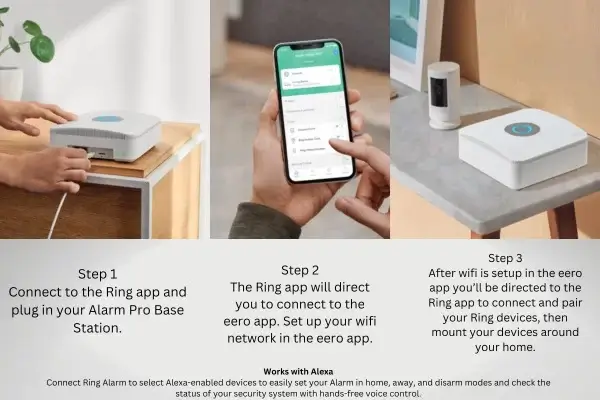
Despite concerns over Ring’s privacy policies and practices, the Ring Alarm Pro is an impressively intelligent DIY home security system that I have had the pleasure of testing.
In a crowded market, it is surprisingly affordable, with a base system including four entry sensors, one motion detector, one Z-Wave extender, a keypad, and a base station costing only $300. Other devices can be added at reasonable prices on an a la carte basis. For further information, check out our detailed review of the Ring Alarm Pro.
2. SimpliSafe Home Security

 Check Price Amazon
Check Price Amazon
SimpliSafe was among the initial options for DIY home security systems, and it provides a viable alternative to professional alarm company firms like ADT. This system’s affordability and the wide range of accessories available are the primary reasons for its popularity. SimpliSafe offers several starter kits that start at around $250, and you can even purchase them at a lower price with discounts.
The impressive selection of accessories that SimpliSafe offers, including indoor and outdoor security cameras, key fobs, additional motion sensors, smoke detectors, glass break sensors, sirens, and excellent performance for its price point, make it our favorite choice for a basic DIY home security system.
3. Wyze Home Monitoring
Check Price Amazon
Wyze Home Monitoring stands out as a cost-effective option in the market. To begin, you would require a Wyze Sense Hub, which costs $30. Alternatively, you could opt for the professional monitoring service for $100 per year, which includes the Hub at no additional cost. However, if you choose to pay $10 each month, you will have to purchase the Hub separately.
Once you have the Hub, you can customize your home security system by adding keypads, entry sensors, motion detectors, and other components that best suit your needs.
One minor drawback of Wyze is the absence of a cellular backup in case of power or internet outages. Nevertheless, you can purchase a five-piece Core Kit for approximately $80 on Amazon. It requires a monitoring subscription, but it comes with three complimentary months.
4. Arlo Home Security
Check Price Amazon
Last year, Arlo, a renowned manufacturer of outdoor security cameras, launched its latest home security system which immediately stood out from the crowd due to its all-in-one sensors.
While typical home security sensors perform a singular function such as detecting motion or sound, the Arlo all-in-one sensors can perform eight different detection functions. These versatile sensors can detect motion, sounds such as smoke or carbon monoxide alarms, and changes in ambient light or temperature.
The Arlo starter bundle, which includes a keypad sensor hub and two sensors, starts at $199. While it may not be the most affordable option available, it provides the most versatile sensors. Arlo also offers other home security bundles that range from $300 for a keypad, five sensors, and a yard sign, to $830 for a system that includes a keypad, two sensors, an indoor and outdoor camera, and a video doorbell.
You have the option to customize your Arlo home security system by adding individual cameras, sensors, and a doorbell to your network, or you can start with the $199 bundle and gradually expand your system as needed.
Are You Wasting Money on an Alarm System?
Do Alarm Systems Deter Burglars?
The primary purpose of an alarm system is to deter burglars from breaking into your home. Studies show that homes with visible alarm systems are less likely to be targeted by burglars. The loud siren and flashing lights that go off when an intruder tries to enter your home can be a significant deterrent.
However, it’s important to note that some burglars may still attempt to break into your home, even with an alarm system. In these cases, the alarm will notify you and the authorities, allowing you to take action and potentially catch the intruder.
What Are the Costs of an Alarm System?
Alarm systems can be expensive to install and maintain. You’ll need to pay for equipment, installation, and ongoing monitoring fees. Depending on the type of system you choose, these costs can add up quickly.
There are several types of alarm systems to consider, including:
- Wired systems: These require running wires throughout your home to connect the various sensors and components. They’re typically more reliable but more expensive to install.
- Wireless systems: These rely on Wi-Fi or cellular signals to communicate between the sensors and control panel. They’re easier to install but may not be as reliable.
- DIY systems: These allow you to install the system yourself, saving on installation costs. However, they may not be as effective as professionally installed systems.
Is an Alarm System Worth the Investment?
Whether an alarm system is worth the investment depends on several factors, including your budget, the crime rate in your area, and your personal preferences.
If you live in a high-crime area, an alarm system may be worth the investment for added peace of mind. Additionally, if you travel frequently or have valuable possessions in your home, an alarm system can help protect your property.
However, if you live in a low-crime area and have a limited budget, an alarm system may not be necessary. You can take other steps to secure your home, such as installing deadbolts, motion-sensor lights, and security cameras.
Maximizing Your Investment in Home Security
If you’ve decided to invest in an alarm system, there are several ways to maximize your investment:
- Choose a reputable alarm company: Look for a company with a good reputation and positive customer reviews.
- Customize your system: Choose the sensors and components that best fit your home and lifestyle.
- Test your system regularly: Make sure your system is working correctly by testing it regularly.
- Notify your neighbors: Let your neighbors know you have an alarm system so they can keep an eye out for any suspicious activity.
- Combine with other security measures: Consider combining your alarm system with other security measures, such as security cameras and motion-sensor lights.
Conclusion
An alarm system can be an effective way to deter burglars and protect your property. However, it’s important to consider the costs and whether it’s worth the investment based on your personal circumstances. If you decide to invest in an alarm system, be sure to choose a reputable company and take steps to maximize your investment in home security.
The Truth About Home Security Systems: DIY Home Security
In recent years, do-it-yourself (DIY) home security systems have gained popularity as an alternative to traditional professionally monitored security systems. With advancements in technology and the availability of affordable smart devices, many homeowners are opting for DIY solutions. However, it’s important to understand the truth behind DIY home security systems before making a decision.
One of the main advantages of DIY home security systems is the cost-saving factor. Traditional systems often require expensive installation fees and long-term contracts, whereas DIY systems can be set up by the homeowner without professional assistance. This affordability makes it an appealing option for budget-conscious individuals.
Read more: The Truth About Home Security Systems

